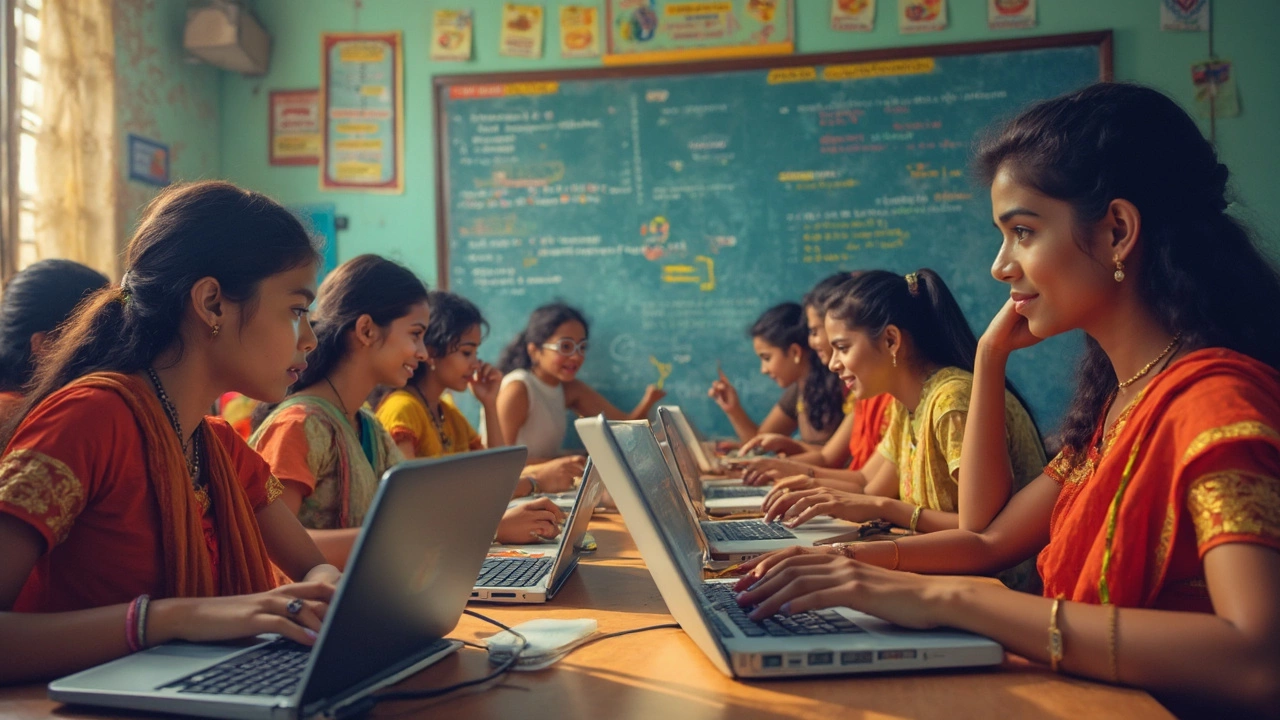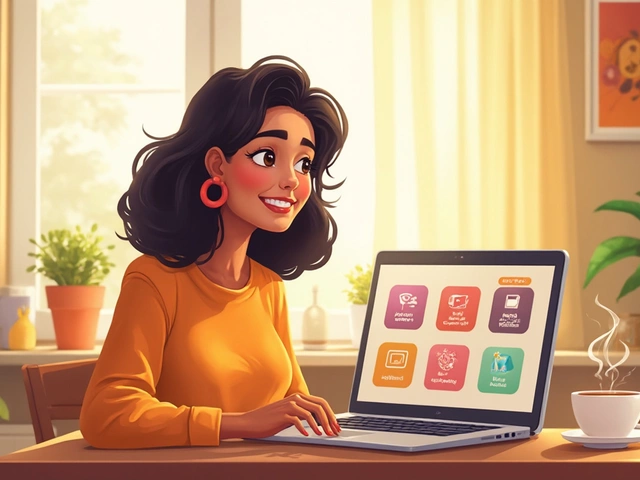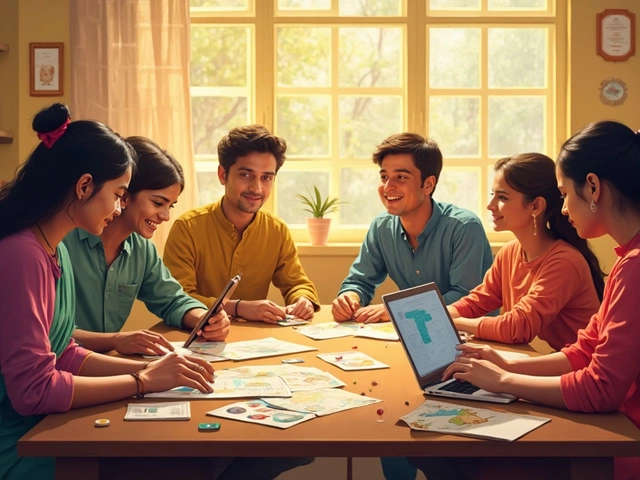So, you're thinking of jumping into the world of coding? Great choice! But with so many options out there, how do you figure out which language to start with? It can feel a bit overwhelming, but breaking it down can make things clearer right away.
For most beginners, the ideal starting point boils down to just a few strong contenders. Two languages often recommended for their simplicity and widespread use are Python and JavaScript. Why? Well, Python is renowned for its clear, readable syntax, making it a perfect candidate for those who don't have much experience decoding cryptic hieroglyphs in code form. Plus, it's super versatile, powering everything from simple websites to complex machine learning models.
JavaScript, on the other hand, dominates the realm of web development. If you're dreaming of building interactive websites or working with web-based applications, JavaScript might just be your new best friend. It's literally everywhere online, and once you get the hang of it, it's fun to play around with.
Getting Started with Coding
Taking your first steps in coding can be exciting and intimidating, all at once. The trick is not to get bogged down by the jargon and instead focus on the essentials that will get you up and running.
First things first, remember that coding is just a way to give a computer a set of instructions to perform tasks. With that in mind, let's tackle the basics:
Setup Your Environment
Before diving into writing code, you'll need a reliable setup. Choose a comfortable space and ensure your computer is ready. Install a code editor like Visual Studio Code, which is user-friendly and packed with features that can help newbies breeze through their learning curve.
- Python for Beginners: Install Python from its official website. It conveniently comes with IDLE, a straightforward environment to practice your first scripts.
- JavaScript Basics: You can start coding directly in your web browser. Switch on the Developer Tools and get coding in the Console tab.
Document your progress as you learn. Keeping a journal of what you're doing helps reinforce your understanding and provides a reference for when (not if) you get stuck.
Online Resources and Communities
Leverage online tutorials and coding platforms. Websites like Codecademy, freeCodeCamp, or Khan Academy offer interactive lessons that are perfect for beginners. They take you through exercises step-by-step, providing a structured approach to learning.
Get involved with coding communities like Stack Overflow and GitHub. These platforms are teeming with enthusiastic coders eager to help and share tips. Ask questions, no matter how trivial they might seem. This kind of interaction speeds up the learning process and connects you with like-minded people.
Goals and Motivation
Define your coding goals. Whether it's building a website, automating boring tasks, or simply learning a new skill, having a clear objective keeps you motivated. Set small, achievable targets to maintain steady progress. It's motivating to see how each mini-victory brings you closer to mastering a new coding language.
Consider Your Goals
When you're choosing a coding language, you've got to think about what you actually want to accomplish. Are you aiming to build cool websites, dive into the world of data, or maybe create an awesome game? Your end goal will definitely shape your path.
Web Development
If making websites is your jam, you'll want to look at a language that's in the web development mix. JavaScript is unavoidable here. As a key player in front-end development, it's used by practically every site out there. If your dream is to design the next Instagram or Facebook, mastering JavaScript will give you a solid foundation. Pair it with a bit of HTML and CSS knowledge, and you'll be crafting engaging websites in no time.
Data Science & Machine Learning
Now, if slicing through data and finding patterns is your thing, Python is the no-brainer choice. It’s leading the charge in data science and machine learning because of its simplicity and tons of libraries like Pandas and TensorFlow.
| Language | Field | Used By |
|---|---|---|
| Python | Machine Learning | Google, Facebook |
| JavaScript | Web Development | Amazon, Netflix |
Game Development
Game development is a thrilling challenge. A beginner-friendly language here would be C#, especially with its integration in Unity, a popular game engine. If cartoon-style games or mobile apps are what you're inspired by, this is your ticket. With C#, you can bring fantasy worlds to life.
Ultimately, jot down what excites you most and align your choice with that. The world of coding is vast, and there's a language for every passion. Once you’ve identified your goals, everything else starts to fall into place.

Popular Beginner Languages
When you're just starting out, the sheer number of programming languages can feel like a lot to take in, but there are some clear winners if you're new to coding. Let's talk about a few that are often recommended by experts and have proven track records.
Python
Let's kick it off with Python. It's loved because of its simple, easy-to-learn syntax, which looks almost like plain English. This makes it fantastic for coding for beginners. It's used in AI, machine learning, data analysis, and web development, so there's a lot you can do as you grow your skills. In 2023, Python remained the most popular language according to many developer surveys.
JavaScript
Next up is JavaScript. If you're aiming to work in web development, this one is a no-brainer. It's crucial for building interactive websites and is essential for front-end development. Every time someone mentions a dynamic website, JavaScript is involved. The language is so integrated into web technologies that you'll find learning it opens many doors in tech.
Ruby
Then we have Ruby, particularly its Rails framework. It’s known for its elegant syntax, which can be a delight for new coders. Ruby on Rails emphasizes convention over configuration, which simplifies the decisions you need to make as you’re learning. This framework has powered some popular sites you might know, like Airbnb and Shopify.
HTML and CSS
Okay, so HTML and CSS aren't exactly programming languages, but they're the bread and butter of web development basics. Understanding these will lay a solid foundation if you're interested in web technologies.
When choosing your best coding language to begin with, consider what you want to build and do a little research on what language aligns with your interests. Each language has a vibrant community and tons of resources, so pick one that excites you, and start building projects. Getting your hands dirty is the way to go!
Tips for New Coders
Diving into coding can feel a bit like learning a new language. But don't worry, every coder has been there. Here are some handy tips to start your journey the right way.
Start Small, Think Big
It might be tempting to jump into complex projects right away, but trust me, starting small will save you from a world of frustration. Begin with simple tasks like printing 'Hello, World!' or calculating basic formulas. These small wins build confidence and understanding.
Consistency is Key
Coding is not about cramming all night but practicing regularly. Try to code a little every day, even if it's just for 20 minutes. This consistency helps your brain retain information better and keeps you in the flow.
Use Online Resources
The internet is brimming with helpful resources for newbie coders. Platforms like freeCodeCamp, Codecademy, and Coursera offer fantastic courses tailored for beginners in coding. Video tutorials and coding blogs can also provide valuable insights.
Join a Community
Learning with others can make a huge difference. Join coding forums like Stack Overflow, Reddit's r/learnprogramming, or local meetup groups. Engaging with a community can bring new perspectives and highlight common pitfalls to avoid.
Debugging is Your Friend
Don't be discouraged by errors; they're part of the process! Use debugging tools and learn to read error messages—they often tell you exactly what's wrong. It's also helpful to revisit your code and ensure it follows logical steps.
Experiment and Have Fun
Once you grasp the basics, experiment with your code. Modify existing projects, try out new ideas, and most importantly, have fun. Coding is a creative process, so let your curiosity lead you.
Finally, remember that everyone's coding journey is unique. Progress at your own pace and celebrate your achievements. Happy coding!





